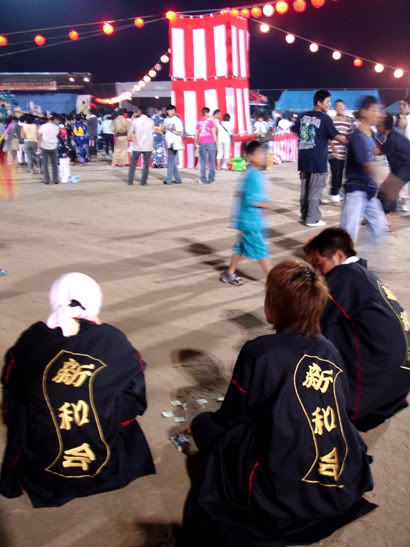
Obon, the annual Buddhist ritual of welcoming ancestral spirits back to the world of the living, is one of the three major Japanese holidays. Usually celebrated August 13 thru the 17th, many employees are given mandatory paid leave to return to their ancestral abodes to pray for the repose of their forefathers, visit their graves, and guide their spirits back home with fire, lanterns, and prominent displays of the family crest.

Two of my elementary school students in their brand-spankin' new, stylin' yukatas, complete with huge glowing hoop earrings.
Of course these days Obon is often seen as an excuse to celebrate the cool nights and lazy days of summer, show off the latest yukata fashions, and see old friends. "This festival is just summer, no god." My friend explained to me as we drove along the narrow winding roads that lead up from the Kiso River into the mountain cleft of Nakanoho.
Of course these days Obon is often seen as an excuse to celebrate the cool nights and lazy days of summer, show off the latest yukata fashions, and see old friends. "This festival is just summer, no god." My friend explained to me as we drove along the narrow winding roads that lead up from the Kiso River into the mountain cleft of Nakanoho.
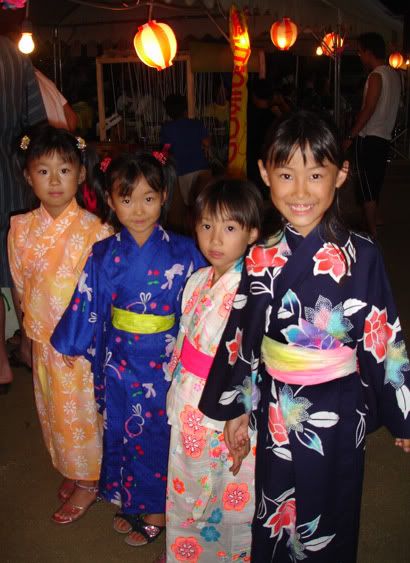
The truth is that Obon finds its Buddhist roots in the Ura-Bon-Sutra, which recounts the legend of Moku-ren, a Buddhist monk distressed over a vision of his mother suffering in hell. Desperate to rescue her from the Hunger Devil, the Buddha suggests he ask the local monks to make generous offerings of food, thus easing her pain for seven generations. Mokuren was so relieved that he had alleviated his dead mother's suffering that he danced. The tale represents the need to change resentments and regrets about our parents and ancestors into appreciation for what they did to make our present life possible.
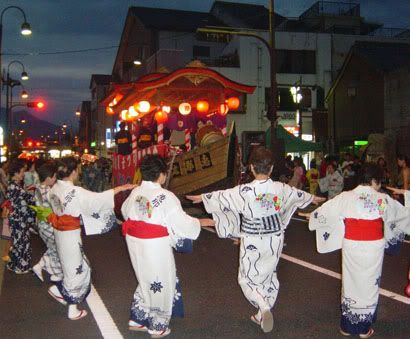
The event also reflects an older, pre-Buddhist, Japanese belief that the spirits of dead come home each year to visit their families. In early times, on the first evening of the festival, fires were lit in people's yards and on nearby hills to guide the souls home. The next evening a neighborhood dance (odori) was performed, using tunes and steps drawn from community tradition, handed down thru the generations. On the third day the families sent the souls of their relatives back to the spirit world by lighting the way with roadside torches or floating lanterns, which drifted down the river or out to sea on the tide. It also embodies the Japanese custom of venerating their ancestors, honoring departed parents for the "debt that can never be repaid."
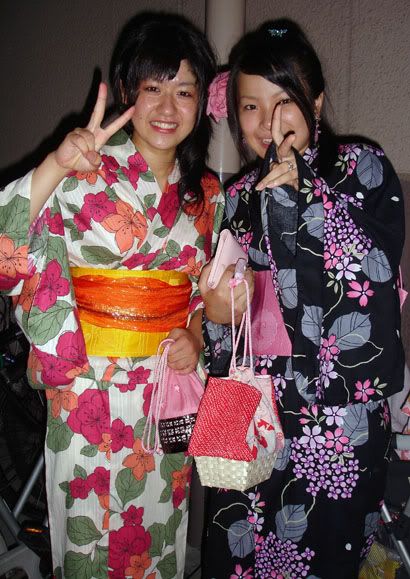
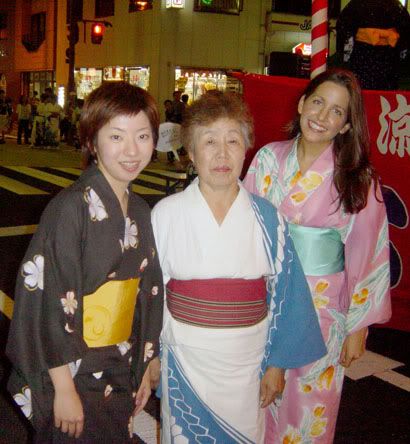
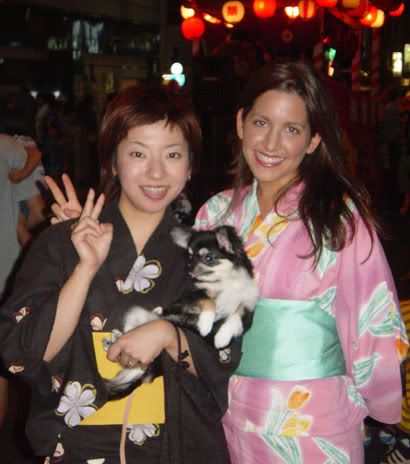
My friend Keiko and I, in the yukata she gave me, and her little dog too!


0 comments:
Post a Comment